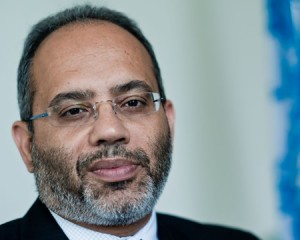ECA criticises perception-based corruption assessments

The UN Economic Commission for Africa (ECA) is calling for a departure from perception-based measures of corruption, and cross-country comparisons which it says are flawed and fail to provide enough guidance for policy.
Due to the secrecy that often surrounds corruption and the difficulty of gathering data on factual experiences of corruption, perception-based approaches which often measure corruption by assessing the perceptions of a broad range of experts and other individuals on corruption levels, combined with country rankings, are prominent.
The ECA in the fourth edition of its African Governance Report (AGR IV) titled “Measuring corruption in Africa: the international dimension matters”, says prominent use of experts’ assessments and their re-evaluation of available data, the tendency to focus on the response of criminal justice systems to corruption instead of the true extent and nature of the crime itself, and the ambiguity in definition, make current approaches to assessing corruption not very useful for policy making.
“Current indicators do not present a reliable picture of corruption in Africa, since they are perception-based. For any indicator of corruption to be strong and reliable, it is necessary that the sample be homogeneous. The standard practice is that the different indicators, used in the various corruption indices, are gathered from surveys administered to a limited sample of people,” it said.
Results of perception-oriented assessments such as the World Bank’s Country Policy and Institutional Assessment, and Transparency International’s Corruption Perceptions Index and the Global Corruption Barometer can sometimes change more than corruption itself.
In the meantime, the ECA’s report which will be launched on April 2, 2016 in Addis Ababa during the Africa Development Week, advises that perception-based methods which are “anchored on more transparent and representative surveys” should be used cautiously, complemented where possible, with quantitative country or case-specific indicators to produce more useful measures of corruption.
The ECA also urges greater attention on the transnational dimension of corruption in Africa, since it is likely Africa loses much more to corruption by multinational companies than the multitude of SMEs.
Meanwhile, corruption data rarely captures the international dimension of corruption, even though the phenomenon is an international one.
The Executive Secretary of the ECA Carlos Lopes, was quoted as saying that “many corrupt practices on the continent are generated and abetted by non-African players.”
“Given the prominence and pertinence of its international dimension, the problem of corruption in Africa cannot be tackled by crafting policies, which are exclusively domestic-oriented. At a minimum, there is a need to sharply increase the transparency of the international financial system and to augment the capacity of States, so as to place an obstacle to illicit financial flows, which are instrumental to the more vicious and damaging occurrences of corruption,” the AGR IV says.
According to the African Governance Report IV, corruption is increasing in Africa as a result of three main factors: institutional weakness in many African countries which allows political leaders and public servants to misuse national resources with impunity; poor incentives and a decline in the living standards of public servants; and the blind eye often turned to corruptors by western countries.
The ECA says foreign companies and private interests often take advantage of the weak and ineffective institutional mechanisms to deal with corruption, to corrupt state officials in order to gain undue advantage or secure political privileges in policies.
As part of its recommendations, the ECA says African states should introduce and enforce processes that allow for greater citizen participation in policy making and development planning; improve transparency by enacting and implementing right to information laws; build credible governance institutions; and foster international collaboration to improve the global governance architecture by giving equal attention to the supply side of corruption and being proactive in activities to combat illicit financial flows.
By Emmanuel Odonkor
